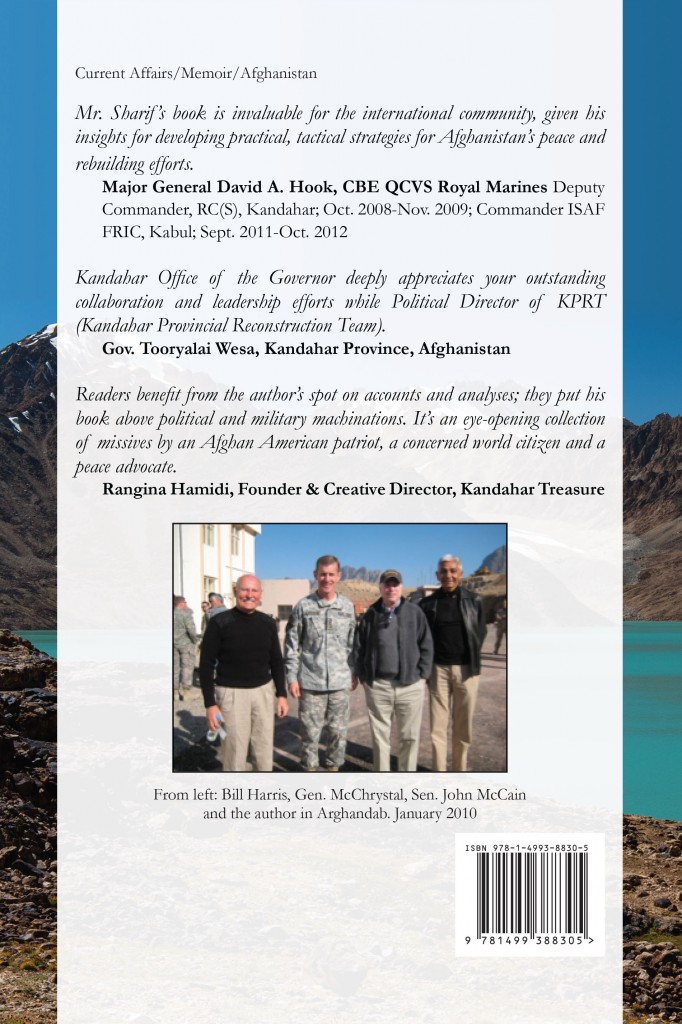“Knowing the past of Afghanistan as well as its present is the subject of Abdullah Sharif’s book, Sardar: From Afghanistan’s Golden Age to Carnage ($12.95 @ Amazon.com and other Internet book outlets, softcover), a personal account of his return to his former home after joining the U.S. State Department in 2009. He had been back in 2007 and was horrified by what he saw. In his absence of thirty years, his birth nation was in ruins, the result of invasion by the Soviet Union and the struggles with the Taliban after it withdrew. This is his memoir of his memories of the nation he left in 1976, the golden age to which he makes reference, to its present times. As he notes, his book is not that of an “expert”, but rather of a U.S. diplomat speaking for himself, unofficially of the devastation and corruption he found and an effort to explain the nation’s culture so that the U.S. can take steps to help Afghanistan became an independent nation. For his efforts, he was awarded an Expeditionary Service Award and Meritorious Civilian Service Award. The Governor of Kandahar Province, Tooryalai Wesa, Ph.D, described his book as filled with priceless observations and you will come away with a far better understanding of the nation than from reading official or academic writings on this subject.” – Bookviews by Alan Caruba
“A memoir of a man who grew up in Afghanistan, left for 30 years, and returned to help after the country was ravaged by war. Debut author Sharif departed Afghanistan in 1976 for an education abroad, and didn’t come back until three decades had passed. After the U.S. invasion of the country following the tragic events of September 11, 2001, Sharif joined a special State Department program to become a diplomat, which in turn led him back to Kabul. However, he found Afghanistan all but unrecognizable, torn asunder by war, tribal conflict and a Taliban hellbent on thwarting the establishment of a stable democracy. The book is a series of letters he wrote to family and friends while on assignment in Afghanistan between 2009 and 2011. The epistles are bittersweet, enlivened by the author’s joy at finally returning to the place of his birth, but also darkened by his realizations that the object of his fond remembrances was now plagued by strife. In one particularly poignant passage, Sharif recounts meeting a barber who turned out to be the grandson of the barber who cut the author’s hair when he was a young child. Interspersed among such personal recollections are meditations on the principal sources of Afghanistan’s troubles, and what strategies could conceivably bring relief. He also provides a running commentary on other subjects, such as the core principles of “Pomegranate Diplomacy,” Muslim dietary restrictions, and important but elusive cultural terms and practices. Along the way, Sharif often writes elegiacally about his country: “It is certainly a tall order and a pipe dream on my part to want to restore the current society to some semblance of Afghanistan’s forgotten Golden Era.” The book closes with an epilogue in which the author reflects on the death of his father and, by extension, the decline of his homeland.
An emotionally arresting, thoughtful account about the soul of Afghanistan.” – Kirkus Reviews


